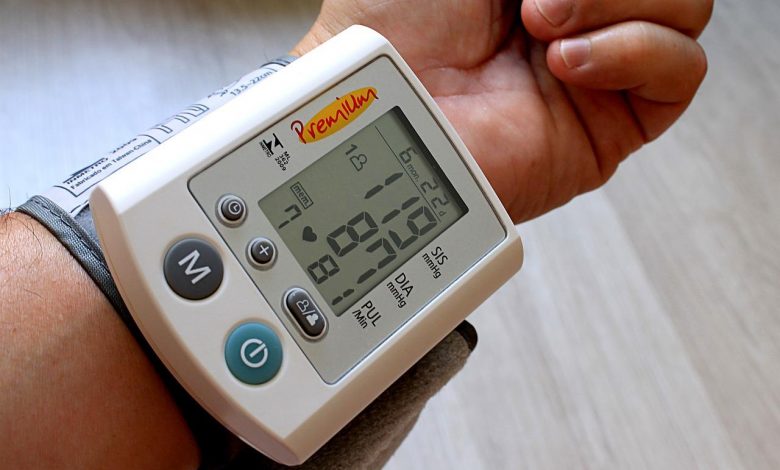Can Xanax Lower Your Blood Pressure?

Blood pressure refers to the force that moves blood through the circulatory system. It is an important force because oxygen and nutrients would not be pushed around the circulatory system to nourish tissues and organs without blood pressure.
Blood pressure is also vital because it delivers white blood cells and antibodies for immunity and hormones such as insulin. Just as important as providing oxygen and nutrients, the fresh blood that gets delivered is able to pick up the toxic waste products of metabolism, including the carbon dioxide we exhale with every breath and the toxins we clear through the liver and kidneys.
Low blood pressure is generally considered a blood pressure reading lower than 90 millimeters of mercury (mm Hg) for the top number (systolic) or 60 mm Hg for the bottom number (diastolic). What’s considered low blood pressure for one person might be OK for someone else.
Normal blood pressure is vital to life. Without the pressure that forces our blood to flow around the circulatory system, no oxygen or nutrients would be delivered through our arteries to the tissues and organs.
What is Xanax (alprazolam)?
Xanax is a brand of alprazolam, a powerful benzodiazepine that is used to treat anxiety and panic disorders by decreasing abnormal excitement in the brain. The medication comes in the form of a tablet that quickly dissolves in the mouth, an extended-release tablet, or a concentrated oral solution. Generic Xanax comes in different shapes, colors, and sizes.
Benzodiazepines can have therapeutic anti-anxiety, anti-convulsant, muscle relaxing, and sedative effects. Xanax works by increasing the effects of a brain chemical called gamma-aminobutyric acid (GABA), which promotes calmness and produces a relaxed feeling. The drug decreases the level of excitement in the brain to treat anxiety and panic disorders.
Alprazolam is among the most prescribed benzodiazepine drugs in the U.S. and is among the benzodiazepines most often found in the illegal market, according to the Drug Enforcement Administration.
Xanax is often prescribed for mental health disorders related to anxiety. It can be used to treat general anxiety, panic disorder, social anxiety disorder, and phobias. It can also be used to treat seizures. For people who suffer from anxiety, it can create a sense of relief to focus on their lives without issues of anxiety or phobias plaguing them. When used as prescribed, it can calm people down and make them feel relaxed.
Xanax can also reduce physiological symptoms of anxiety and fear, such as a racing heart or hyperventilation. These drugs are so often prescribed because they work well on anxiety and they’re cheap.
However, many people use Xanax for nonmedical reasons, taking it in larger doses or more frequently than prescribed because it can create a euphoric feeling, especially at higher doses. Xanax tends to start acting quickly after a person takes it, and the euphoric effects of the drug will usually manifest themselves within about an hour after taking it.
A tendency has grown in some social circles to view Xanax, as a type of “alcohol” in pill form. It’s become socially acceptable among these groups of friends to get together and share Xanax with one another. Of the 30.5 million people who used benzos in 2015, 17.1% misused them. Misusing Xanax or combining it with other substances like alcohol can amplify its effects, but the results can also be deadly.
Along with recreational use, many people rely on Xanax to deal with issues like situational anxiety without having to commit to therapy, which can be expensive and time-consuming. Xanax is popular in America, for example, because there is a tendency for people to love things that are looked at as a quick fix. Xanax isn’t a long-term medication, so some people “take it when they need it” for relief. The temporary relief they feel can help in a fast-paced world with constant exposure to negative world news, stressful jobs, and uncertainty.
Can Xanax lower your blood pressure?
Yes, Xanax can lower your blood pressure because it works by slowing down the central nervous system activity, which can result in a temporary drop in blood pressure and may also lower your blood pressure over the long term
However, doctors do not recommend taking Xanax for a long time even though studies have demonstrated that benzodiazepines can help reduce the acute elevation of blood pressure in hypertensive patients. This is because one of the long-term effects of Xanax and other benzodiazepines is that people develop a tolerance quickly. This means they need more of the drug to achieve the same effect. The drug also becomes less effective for lowering blood pressure. As a result, people may take high doses of Xanax beyond what a doctor would prescribe.
Taking Xanax for a long time to lower your blood pressure can also result in psychological dependence. Someone with a psychological dependence on Xanax makes sure they always have the drug on hand. They may think about it a lot of the time, imagine how it’ll make them feel, and rely on it to get through the day.
The most important reason why doctors do not recommend the use of Xanax to lower your blood pressure is the risk of addiction. Tolerance can develop without a person showing obvious signs of physical dependence. Because of this, addiction to Xanax can sneak up on them. A person may not recognize they are addicted until they stop taking Xanax to lower their blood pressure. If you have high blood pressure, you should not rely on Xanax to lower your blood pressure. Instead, you should speak to your doctor about appropriate medications or lifestyle changes that can effectively manage your condition.
What are the other side effects of Xanax?
Side effects often occur while taking Xanax to lower blood pressure.
Some possible side effects of Xanax include:
• a dry mouth or increased saliva
• abnormal dreams
• abnormal involuntary movement
• anxiety
• blurred vision
• chest pain
• confusion
• confusion
• constipation or diarrhea
• decreased libido
• depression
• dizziness
• drowsiness
• edema
• fainting
• fear
• headache
• hyperventilation
• impaired coordination
• incontinence
• increased libido
• increased or decreased appetite
• inflammation of the skin due to allergy
• insomnia
• irritability
• lightheadedness
• low energy
• memory impairment
• menstrual disorders
• muscle twitching and cramps
• nasal congestion
• nausea and vomiting
• nervousness
• rash
• restlessness
• rigidity
• slurred speech
• sweating
• tachycardia or heart palpitations
• tinnitus
• tremor
• upper respiratory infection
• weakness
• weight gain or loss
The above is not a complete list of side effects, and others may occur taking Xanax to lower blood pressure. Call a doctor for medical advice about side effects. People can also report any Xanax side effects they experience to the FDA at 800-332-1088.
A person needs emergency medical help if they have any of these symptoms of an allergic reaction to Xanax:
• hives
• difficulty breathing
• swelling of the face, lips, tongue, or throat
A person should call their doctor at once if they have serious side effects such as:
• depressed mood, thoughts of suicide or hurting oneself, unusual risk-taking behaviors, decreased inhibitions, or no fear of danger
• confusion, hyperactivity, agitation, hostility, or hallucinations
• feeling very faint
• urinating less than usual or not at all
• chest pain, a pounding heartbeat, or a fluttering feeling in the chest
• uncontrolled muscle movements, tremors, or seizures
• jaundice, or yellowing of the skin or eyes





